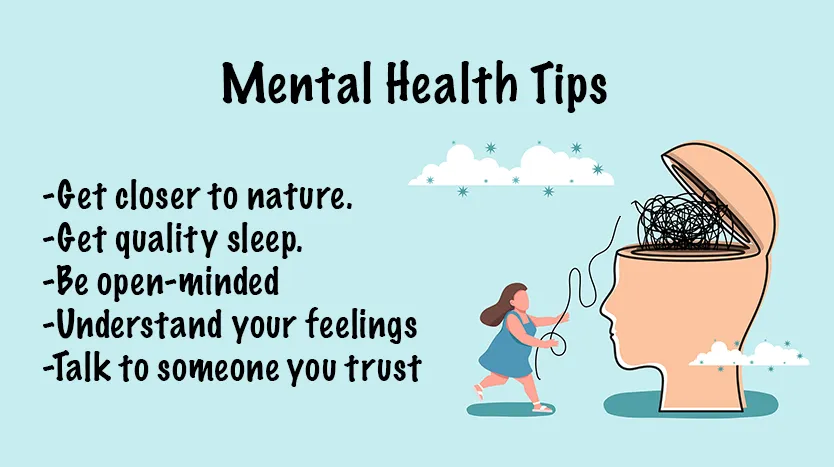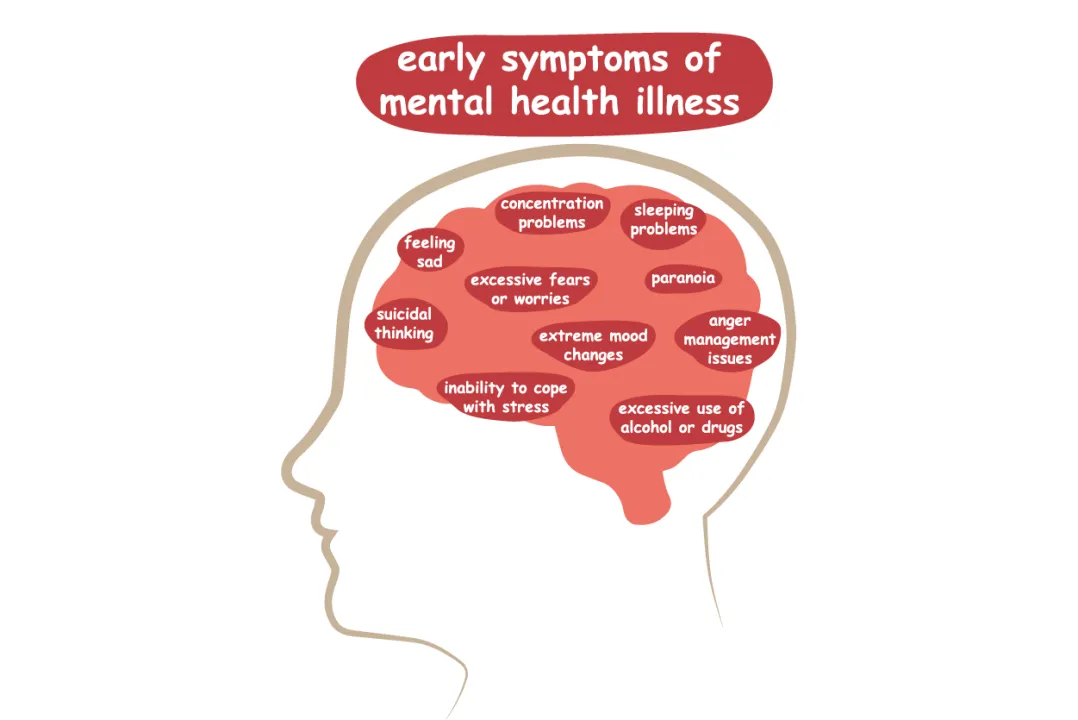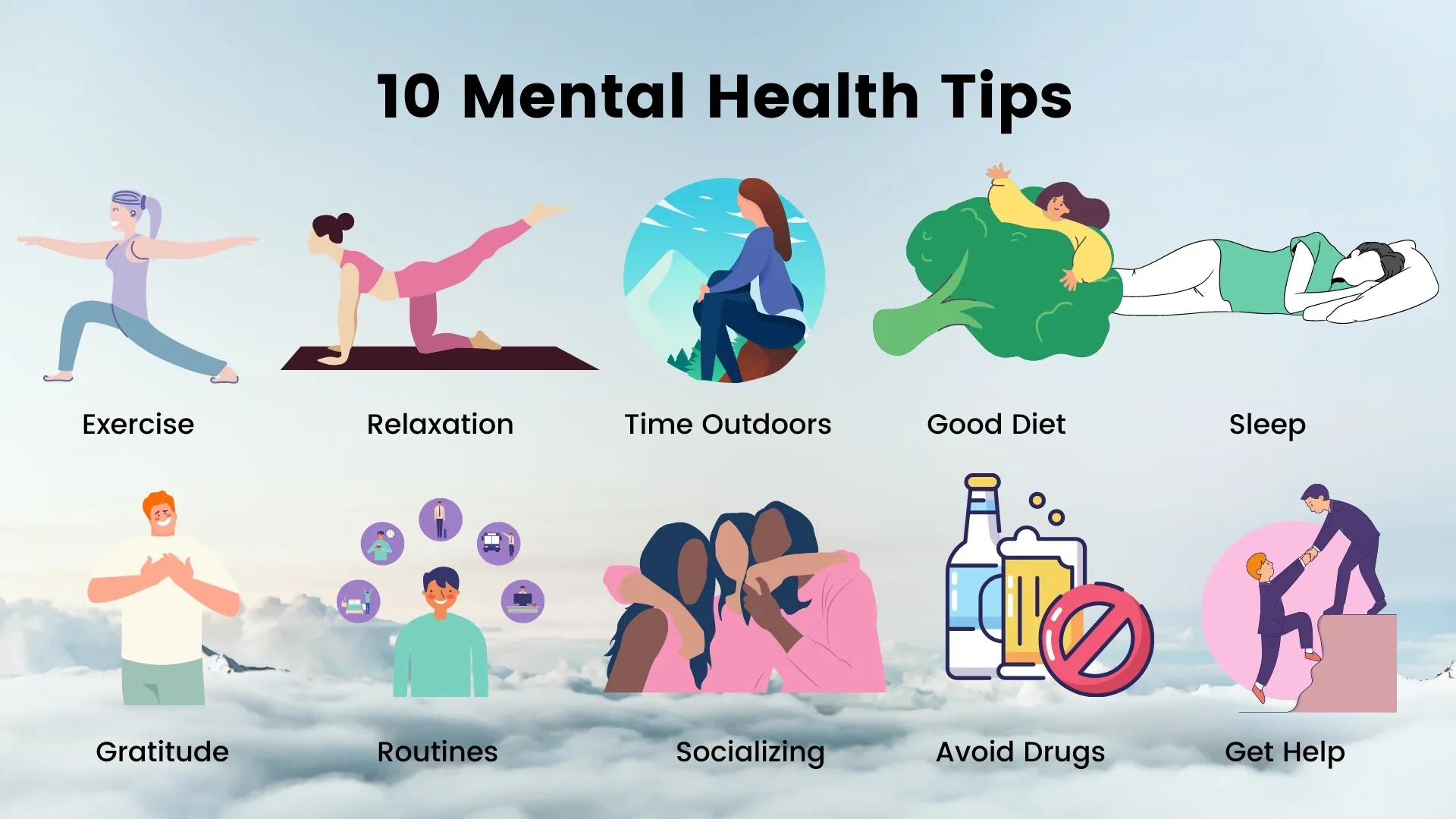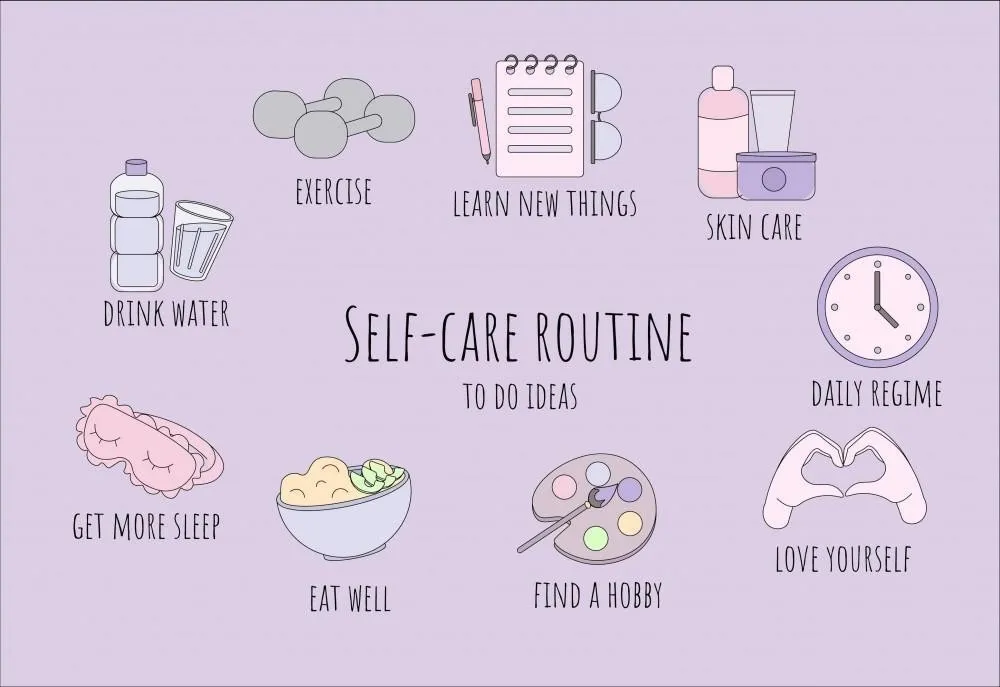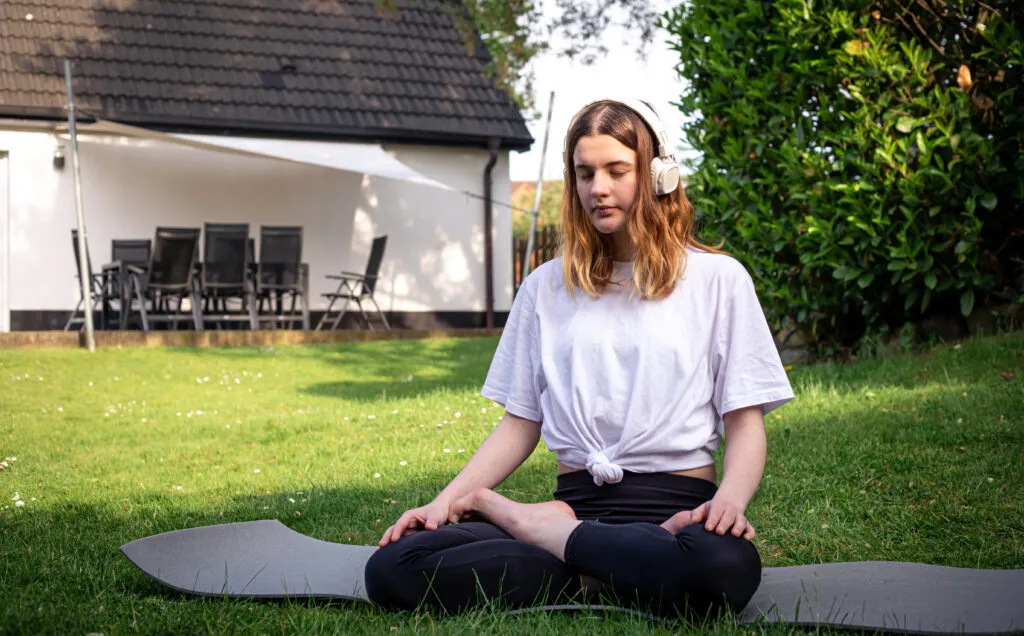Being a student can be exciting and rewarding, but it can also be stressful. Between academic pressures, extracurricular activities, and the challenges of balancing social and personal life, students often face significant mental health challenges. Mental well-being is just as important as physical health, and taking steps to prioritize mental health can improve academic performance, personal happiness, and overall resilience. Here are some practical mental health tips for students to manage stress, build emotional strength, and foster well-being.
1. Establish a Healthy Routine
A consistent routine is key to managing stress and staying organized. Routines help students plan their time effectively, which can reduce anxiety about deadlines and responsibilities. A balanced routine includes time for studying, relaxation, exercise, socializing, and self-care.
Health Tip:
- Set a daily schedule that includes time for both work and rest. Ensure you have regular sleep patterns, healthy meals, and breaks in between study sessions.
Example Routine:
- Wake up at the same time each day.
- Schedule study sessions in blocks with breaks (e.g., 25 minutes of studying, 5-minute break).
- Incorporate physical activity like a walk, stretch, or gym session.
- Wind down with a relaxing activity such as reading, meditation, or journaling before bed.
A structured routine can provide a sense of control and stability, helping you manage stress more effectively.
2. Practice Mindfulness and Meditation
Mindfulness and meditation are powerful tools for reducing stress and improving emotional regulation. By focusing on the present moment and calming the mind, students can reduce anxiety and become more self-aware. These practices help students gain a sense of peace amidst the busy demands of student life.
Health Tip:
- Take a few minutes each day to practice mindfulness or meditation. Start with simple breathing exercises to center your thoughts.
How to Start:
- Sit in a comfortable position and close your eyes.
- Focus on your breathing, slowly inhaling and exhaling.
- If your mind starts to wander, gently guide your attention back to your breath.
- Apps like Headspace or Calm offer guided meditation sessions that can be helpful for beginners.
Regular mindfulness practice can enhance focus, promote emotional well-being, and increase resilience to stress.
3. Stay Physically Active
Physical exercise is not only beneficial for the body but also for the mind. Exercise releases endorphins, the body’s natural mood elevators, which can help reduce feelings of anxiety and depression. Regular physical activity also improves sleep quality, which is crucial for mental well-being.
Health Tip:
- Aim for at least 30 minutes of physical activity each day. This doesn’t have to mean going to the gym—activities like walking, cycling, yoga, or dancing can also be beneficial.
Easy Exercise Ideas:
- Take a brisk walk around campus or through a nearby park.
- Try a quick home workout routine or yoga session.
- Join a fitness class or sports team at your school to meet new people and stay motivated.
Exercise can be an effective way to release tension, enhance mood, and keep both your body and mind in good shape.
4. Build a Support System
One of the most important aspects of mental health is having a strong support system. It’s essential to reach out to friends, family, or counselors when feeling overwhelmed. Talking to others and sharing your feelings can help reduce feelings of isolation and stress.
Health Tip:
- Reach out to friends or family members when you’re feeling down or stressed. A simple conversation can make a big difference.
Support Resources:
- On-campus counseling services or mental health hotlines.
- Peer support groups or study partners for academic and emotional support.
- Online mental health communities or forums where you can connect with others who may be experiencing similar challenges.
Having people to lean on can help you feel understood and supported, reducing the mental load of student life.
5. Set Realistic Academic Goals
Academic stress is common among students, but setting realistic goals can help you manage it effectively. Instead of striving for perfection, focus on progress and personal growth. Break down large tasks into smaller, more manageable steps, and celebrate your achievements along the way.
Health Tip:
- Create a to-do list or a study schedule to keep track of your assignments and deadlines.
- Set small, achievable goals for each study session, such as completing a chapter or writing a certain number of pages.
Example:
- Instead of saying, “I need to study for five hours straight,” set a goal like, “I’ll study for 45 minutes, then take a 10-minute break.” Repeat this process throughout the day to stay productive without feeling overwhelmed.
By setting realistic and attainable goals, you can avoid unnecessary pressure and feel more in control of your academic responsibilities.
6. Take Regular Breaks
Continuous studying or working without breaks can lead to burnout and decreased productivity. Taking regular breaks not only refreshes your mind but also improves focus and cognitive performance. It’s essential to give yourself permission to rest without guilt.
Health Tip:
- Implement the Pomodoro Technique: study for 25 minutes, followed by a 5-minute break. After four cycles, take a longer break of 15–30 minutes.
How to Relax During Breaks:
- Go for a walk, stretch, or do breathing exercises.
- Listen to music or watch a short, funny video to lift your spirits.
- Grab a healthy snack or hydrate to fuel your body.
Taking breaks helps prevent burnout, allowing you to return to your work feeling more refreshed and focused.
7. Get Enough Sleep
Sleep is essential for both physical and mental health. Students often sacrifice sleep to meet academic demands, but inadequate sleep can impair cognitive function, emotional regulation, and overall health. Aim for 7–9 hours of sleep each night for optimal well-being.
Health Tip:
- Establish a bedtime routine and avoid screen time at least an hour before going to bed. The blue light from screens can interfere with the body’s natural sleep-wake cycle.
Sleep Tips:
- Keep a consistent sleep schedule by going to bed and waking up at the same time every day.
- Create a relaxing environment by keeping your bedroom cool, dark, and quiet.
Getting enough sleep helps you perform better academically, manage stress, and improve your overall health.
8. Engage in Activities You Enjoy
It’s easy for students to get caught up in academic and personal pressures, but it’s important to make time for activities that bring joy and relaxation. Engaging in hobbies or interests outside of your studies can help improve mood and reduce stress.
Health Tip:
- Set aside time for a hobby or creative outlet, such as drawing, playing music, cooking, or photography.
Ideas for Fun Activities:
- Join a student club or organization that aligns with your interests.
- Take up a new hobby, such as knitting, painting, or gardening.
- Participate in a sport or creative class to meet new people and explore your passions.
Pursuing activities you love can provide a sense of fulfillment, improve your mood, and foster personal growth.
Conclusion
Taking care of your mental health is essential for students to thrive academically and personally. By incorporating these practical tips into your routine—such as establishing a healthy routine, practicing mindfulness, staying active, and getting enough sleep—you can manage stress and improve your overall well-being. Remember, it’s okay to seek support when needed, and making mental health a priority can help you succeed in all aspects of student life.
